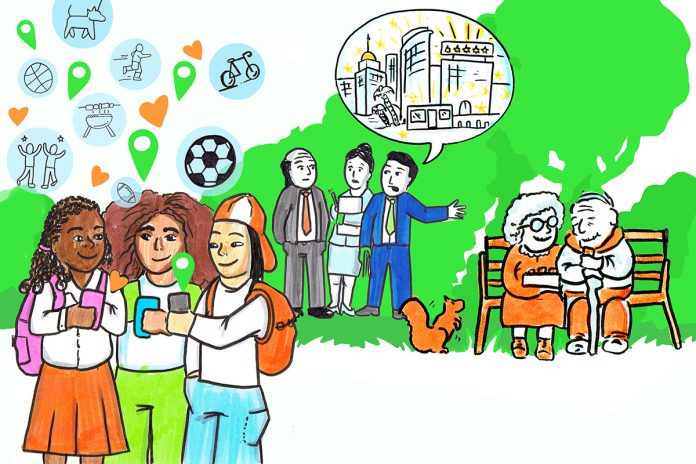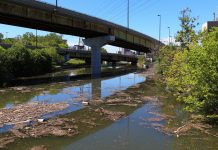Following COP26, it is clear that local governments have a huge role to play in policy change and combatting socio-ecological challenges. To work towards global promises, they must listen to their communities, and here, we learn about innovative tools enabling them to do so
Horizon 2020 funded RECOMS (Re-sourceful and resilient communities) Project is comprised of scientists, practitioners and change agents from eleven public, private and non-profit organisations located in six EU countries. The project trains Early-Stage Researchers (ESRs) in transdisciplinary approaches to support resourceful and resilient community environmental practice.
Today, “resilience” is a buzzword often used within government, therefore RECOMS takes a critical approach to resilience. In simple terms, this means that it is important to understand resilience as being much more about a community’s reactiveness to the local impacts of external events and challenges (including, for example, the effects of climate change). Furthermore, when you’re building resilient systems, you must be careful to think about for whom they are resilient, and for whose interests. This is essential to achieve just sustainability adaptation and transformation.
The resourcefulness aspect of the project is based on working with communities to make the most of their resources, enabling them to be far more creative and free to think about where do they want to take the future of their community, and how to do so in a way which really connects them to local natural systems.
How are these ESRs engaging policymakers and local and national governments to achieve these aims?
Through the networks that have been created by the project partners, ESRs have engaged with local community organisations and conceived ideas about what could improve communication and engagement.
Two open access innovative tools developed by the ESRs are aimed at engaging society and policymakers alike. One promotes conversation and multi-actor strategising about social justice and urban food strategies; the other encourages widespread public engagement with urban planning in relation to the use and valuing of green spaces.
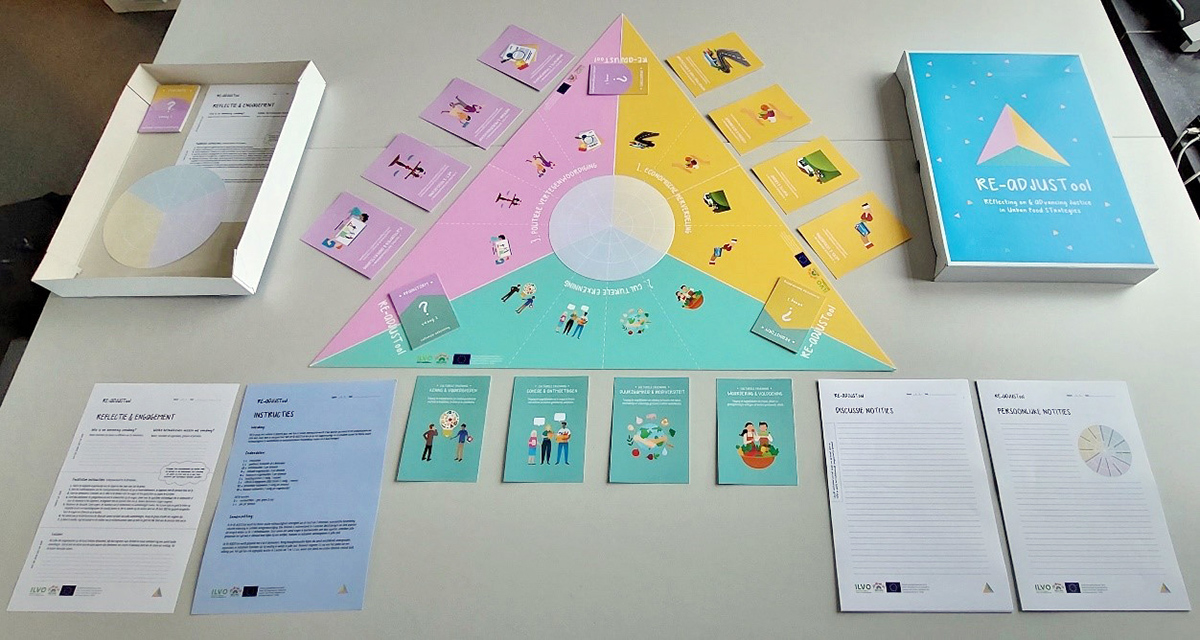
The RE-ADJUST Tool
The RE-Adjust Tool is a tabletop game focussed on dialogue, enabling policy makers, stakeholder organisations and citizens to talk about how to include social justice within an urban food governance context.
Founded by ESR Sara Smaal (in collaboration with Elke Rogge, ILVO), who, when researching on local food strategies, noticed that they heavily engage with the environment, environmental sustainability and transportation, but less with access and citizen social justice as part of urban food strategies. Therefore, she saw the huge need to create an instrument that would enable both community organisations and policymakers to start thinking about social justice as an integral part of urban food strategies. this tool can be used to review and refine existing objectives within urban food strategies and to put in place future steps.
RE-Adjust provides three main areas of consideration:
- Economic redistribution.
- Cultural recognition.
- Political representation.
Within these areas, there are questions that help shape and guide the discussion, also designed to enable policymakers, practitioners and citizens to discuss issues of social justice within their own specific economic, cultural, political, food governance context.
Furthermore, there are also open question cards, included so players can add in additional questions based on their place-specific needs. This encourages critical thinking, allowing the tool to be tailored to each specific context.
The gamification of critical issues has proven a very useful instrument in engaging different stakeholders in an inclusive and relaxed manner. It makes complex issues easy to visualise and engage with. The aim is to bring different stakeholders around the table and facilitate conversation about what’s needed for that local area. It is about listening and allowing other people to raise issues for discussion, such as young people whose opinions often get overlooked.
Another example of how the game can be used is by different divisions within local government playing together, getting conversations flowing with the aim of integrating working between departments.
Why is it important to step out of traditional methods of communication, analysis and data collection?
It helps reach richer, more diverse, more inclusive and more nuanced interpretations. It can help facilitate meaning. It can help visualise different ways of expressing knowledge, bring different insights to a conversation. Making the time, having a conversation, building dialogue with the community and engaging them is key to building trust between governments and citizens, and ultimately, finding solutions.
Playing a game such as the RE-Adjust tool can help place everyone on a level playing field. It can naturally eliminate the power imbalances that otherwise serve to inhibit and undermine the active engagement of community members in contributing their knowledge and ideas to policy decision making.
The importance of community dialogue
Research has shown that people place the most value on forms of public engagement in which their views are actively acknowledged and heard. (1) Sitting down with the community means a lot, and RE-Adjust aims to facilitate this, and shift perceptions of one another, while also appreciating what people can offer and what constraints they’re working under.
Digital tools as a means of engagement
The RE-Adjust tool is also available online giving opportunity to reach a wider group of people, offering flexibility and accessibility when engaging communities.
MyGreenPlace Tool
This tool, developed by Nohemi Rodrigues (in collaboration with Jeroen De Waegemaeker, ILVO) is an app enabling citizens to engage with their open/green spaces, giving information of how they use their environment. It evaluates the needs of local communities with their green spaces and then helps support these needs.
It has currently been tried out in two cities in the Netherlands and has been especially successful in the city of Ghent, where the local municipality already adopted and invested in the tool to facilitate communication with citizens. The app assists urban planners in making decisions about the built environment and green spaces, including how to make them more engaging and accessible. It is user friendly, for a non-technical audience.
COVID-19 really demonstrated the critical role of outdoor spaces in our mental health, well-being and physical health. The pandemic fundamentally changed how people use spaces, and this app can keep citizens up to date on shifts, avoiding having one fixed understanding of how a place is used by the community.
The importance of community dialogue
These tools bring in a much more inclusive approach which acknowledges and celebrates all the different ways of seeing the world, experiences, learnings and capabilities.
Europe is on a path of connecting communities with their local and national governments, academics and NGO’s. Putting communities at the centre of these conversations will ultimately, make everyone more resilient over time.
The MyGreenPlace Tool is currently specifically tailored to two municipalities but can be customised to serve a wider audience. If you would like to collaborate or get involved with MyGreenPlace, please contact:
nohemi.aranda@ilvo.vlaanderen.be
jeroen.dewaegemaeker@ilvo.vlaanderen.be
The RE-Adjust Tool is currently in English and in Dutch. Find out more about the Readjust tool here or get in touch: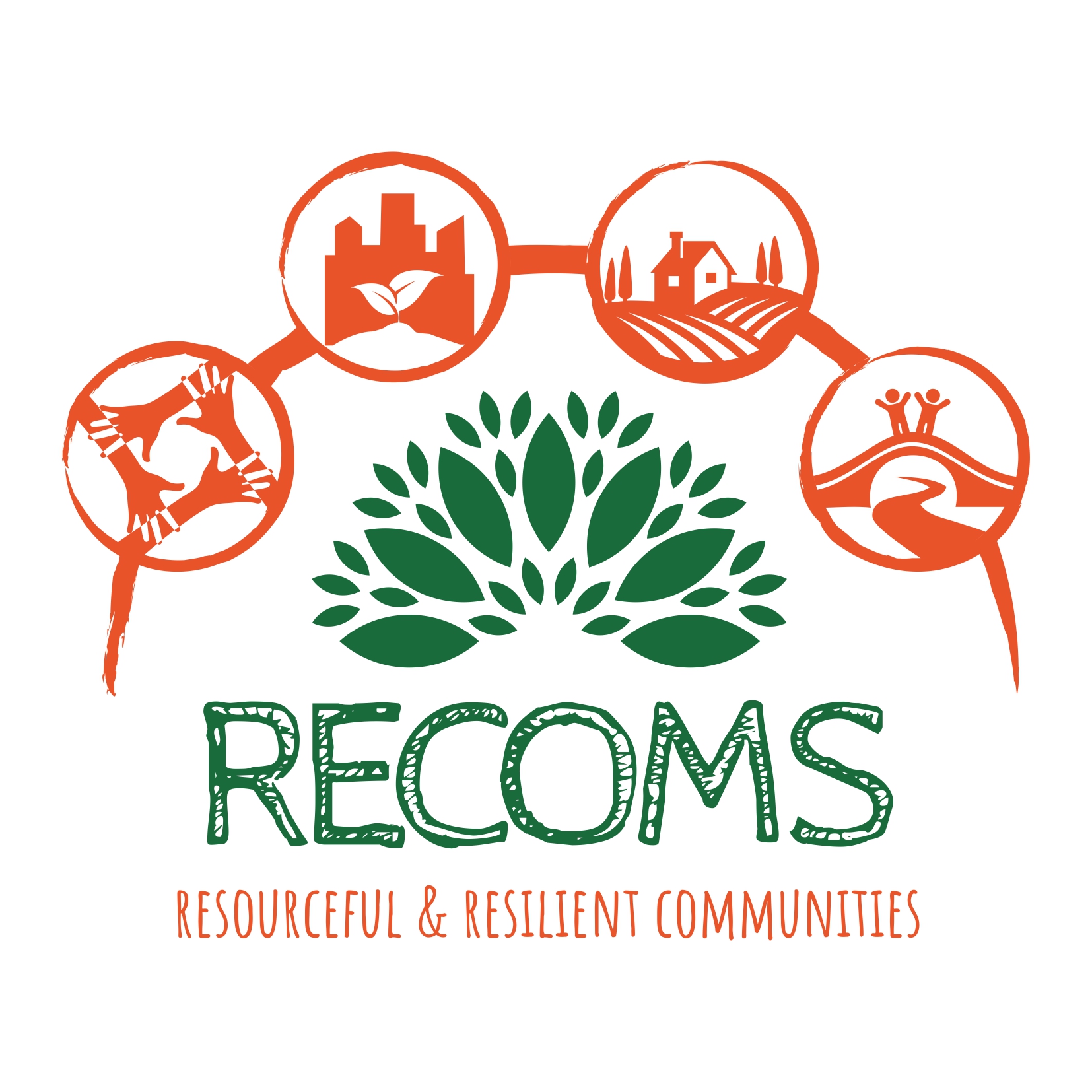
Reference
(1) Barbaro, G. (2006), “Defining realities: Why community consultation needs to start with the problem, not the solution”, Journal of Communication Management, Vol. 10 No. 1, pp. 44-54
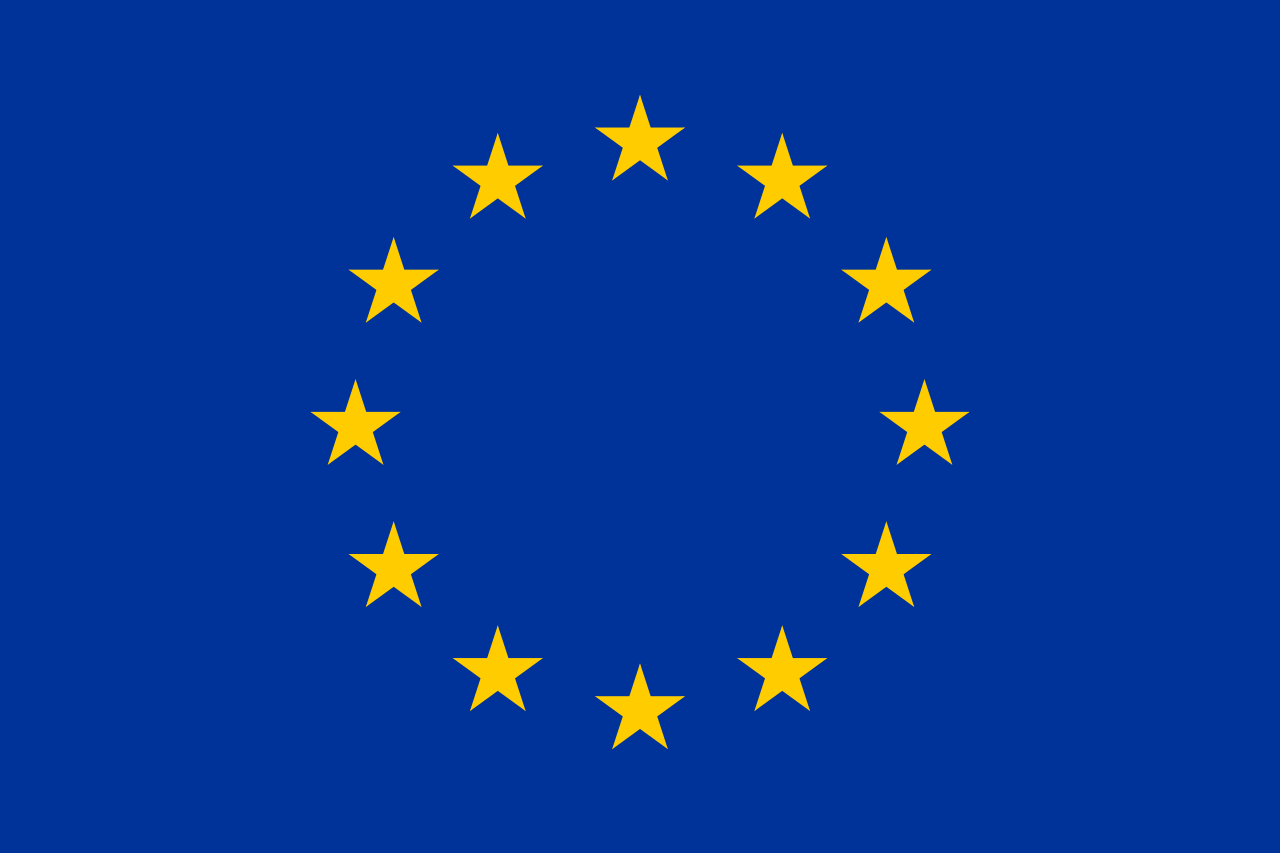
Please note: This is a commercial profile
© 2019. This work is licensed under CC-BY-NC-ND.

